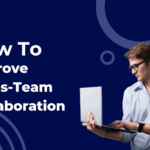Enterprise copilots are poised to revolutionize the way businesses operate, ushering in a new era of efficiency, productivity, and innovation. These AI-powered assistants are designed to work alongside human employees, augmenting their capabilities and streamlining complex processes across various departments.
The Rise of Intelligent Assistants
As artificial intelligence continues to advance, enterprise copilots are becoming increasingly sophisticated. These digital companions can understand natural language, learn from user interactions, and adapt to specific business contexts. By leveraging machine learning algorithms and vast amounts of data, copilots can provide valuable insights, automate routine tasks, and even assist in decision-making processes.
Tonkean’s Enterprise AI Copilot
One notable player in the enterprise copilot space is Tonkean’s Enterprise AI Copilot. This innovative platform combines AI, automation, orchestration, and integrations to create a powerful tool for businesses. Tonkean’s solution offers an AI Front Door that engages users through an intuitive, conversational interface, capable of understanding natural language. This feature allows employees to interact with the copilot seamlessly, whether through email, Slack, or Microsoft Teams, meeting them where they work.
Personalized Experiences and Intelligent Intake
Enterprise copilots of the future will excel at creating personalized experiences for users. Tonkean’s platform, for instance, offers AI-enhanced forms that optimize intake processes based on user roles and situational signals. This level of personalization not only simplifies the user experience but also improves data fidelity by pre-filling fields with information from connected systems across the organization.
Seamless Orchestration and Integration
A key aspect of future enterprise copilots will be their ability to orchestrate processes across various systems, people, and departments. These AI assistants will automate handoffs among teams and applications, monitor systems actively, and trigger actions based on custom business logic. This seamless integration will enable stakeholders to take action directly from their core systems or through popular communication platforms like Slack and Microsoft Teams.
Empowering Business Users
The future of enterprise copilots lies in their ability to empower non-technical business users. Platforms like Tonkean are leading the way by offering 100% no-code interfaces that allow business teams to implement ready-to-use templates or design custom processes and automations. This democratization of technology will enable organizations to rapidly adapt to changing needs without relying heavily on IT departments.
Enhanced Decision-Making and Analytics
As enterprise copilots evolve, they will play a crucial role in decision-making processes. By analyzing vast amounts of data and providing real-time insights, these AI assistants will help businesses make more informed choices. Advanced analytics capabilities will allow organizations to optimize their operations continuously, identify trends, and predict future outcomes with greater accuracy.
Challenges and Considerations
While the future of enterprise copilots is promising, businesses must address several challenges to ensure successful implementation:
- Data privacy and security
- Integration with legacy systems
- User adoption and training
- Ethical considerations in AI decision-making
Conclusion
Enterprise copilots are set to transform the way businesses operate, offering unprecedented levels of efficiency, personalization, and intelligence. As solutions continue to evolve, organizations that embrace these technologies will gain a significant competitive advantage in the rapidly changing business landscape. The future of work will be characterized by seamless collaboration between humans and AI, unlocking new possibilities for innovation and growth.






